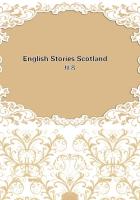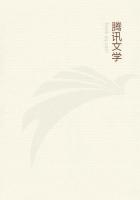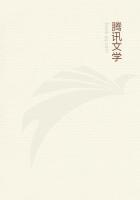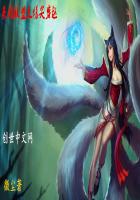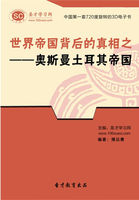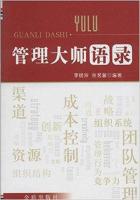SPRINGFIELD, FEBRUARY 9, 1859
HON. N. B. JUDD.
DEAR Sir:--I am not in a position where it would hurt much for me to not be nominated on the national ticket; but I am where it would hurt some for me to not get the Illinois delegates. What I expected when I wrote the letter to Messrs. Dole and others is now happening.
Your discomfited assailants are most bitter against me; and they will, for revenge upon me, lay to the Bates egg in the South, and to the Seward egg in the North, and go far toward squeezing me out in the middle with nothing. Can you help me a little in this matter in your end of the vineyard. I mean this to be private.
Yours as ever, A. LINCOLN
1860
SPEECH AT THE COOPER INSTITUTE, NEW YORK
FEBRUARY 27, 1860
MR. PRESIDENT AND FELLOW-CITIZENS OF NEW YORK:--The facts with which I shall deal this evening are mainly old and familiar; nor is there anything new in the general use I shall make of them. If there shall be any novelty, it will be in the mode of presenting the facts, and the inferences and observations following that presentation.
In his speech last autumn at Columbus, Ohio, as reported in the New York Times, Senator Douglas said:
"Our fathers, when they framed the Government under which we live, understood this question just as well, and even better than we do now."
I fully indorse this, and I adopt it as a text for this discourse.
I so adopt it because it furnishes a precise and an agreed starting- point for a discussion between Republicans and that wing of the Democracy headed by Senator Douglas. It simply leaves the inquiry:
What was the understanding those fathers had of the question mentioned?
What is the frame of Government under which we live?
The answer must be--the Constitution of the United States. That Constitution consists of the original, framed in 1787 (and under which the present Government first went into operation), and twelve subsequently framed amendments, the first ten of which were framed in 1789.
Who were our fathers that framed the Constitution? I suppose the "thirty-nine" who signed the original instrument may be fairly called our fathers who framed that part of the present Government. It is almost exactly true to say they framed it, and it is altogether true to say they fairly represented the opinion and sentiment of the whole nation at that time.
Their names, being familiar to nearly all, and accessible to quite all, need not now be repeated.
I take these "thirty-nine," for the present, as being our "fathers who framed the Government under which we live."
What is the question which, according to the text, those fathers understood "just as well, and even better than we do now"?
It is this: Does the proper division of local from Federal authority, or anything in the Constitution, forbid our Federal Government to control as to slavery in our Federal Territories?
Upon this Senator Douglas holds the affirmative, and Republicans the negative. This affirmation and denial form an issue, and this issue--this question is precisely what the text declares our fathers understood "better than we."
Let us now inquire whether the "thirty-nine," or any of them, acted upon this question; and if they did, how they acted upon it -how they expressed that better understanding.
In 1784, three years before the Constitution--the United States then owning the Northwestern Territory, and no other--the Congress of the Confederation had before them the question of prohibiting slavery in that Territory; and four of the "thirty nine" who afterward framed the Constitution were in that Congress and voted on that question.
Of these, Roger Sherman, Thomas Mifflin, and Hugh Williamson voted for the prohibition, thus showing that, in their understanding, no line dividing local from Federal authority, nor anything else, properly forbade the Federal Government to control as to slavery in Federal territory. The other of the four--James McHenry voted against the prohibition, showing that, for some cause, he thought it improper to vote for it.
In 1787, still before the Constitution, but while the convention was in session framing it, and while the Northwestern Territory still was the only Territory owned by the United States, the same question of prohibiting slavery in the Territory again came before the Congress of the Confederation; and two more of the "thirty-nine" who afterward signed the Constitution were in that Congress, and voted on the question. They were William Blount and William Few; and they both voted for the prohibition thus showing that, in their understanding, no line dividing local from Federal authority, nor anything else, properly forbade the Federal Government to control as to slavery in Federal territory. This time the prohibition became a law, being part of what is now well known as the Ordinance of '87.
The question of Federal control of slavery in the Territories seems not to have been directly before the convention which framed the original Constitution; and hence it is not recorded that the "thirty-nine," or any of them, while engaged on that instrument, expressed any opinion on that precise question.
In 1789, by the first Congress which sat under the Constitution, an act was passed to enforce the Ordinance of '87, including the prohibition of slavery in the Northwestern Territory. The bill for this act was reported by one of the "thirty-nine," Thomas Fitzsimmons, then a member of the House of Representatives from Pennsylvania. It went through all its stages without a word of opposition, and finally passed both branches without yeas and nays, which is equivalent to a unanimous passage. In this Congress there were sixteen of the thirty-nine fathers who framed the original Constitution. They were John Langdon, Nicholas Gilman, Wm. S.
Johnnson, Roger Sherman, Robert Morris, Thos. Fitzsimmons, William Few, Abraham Baldwin, Rufus King, William Paterson, George Claimer, Richard Bassett, George Read, Pierce Butler, Daniel Carroll, James Madison.


